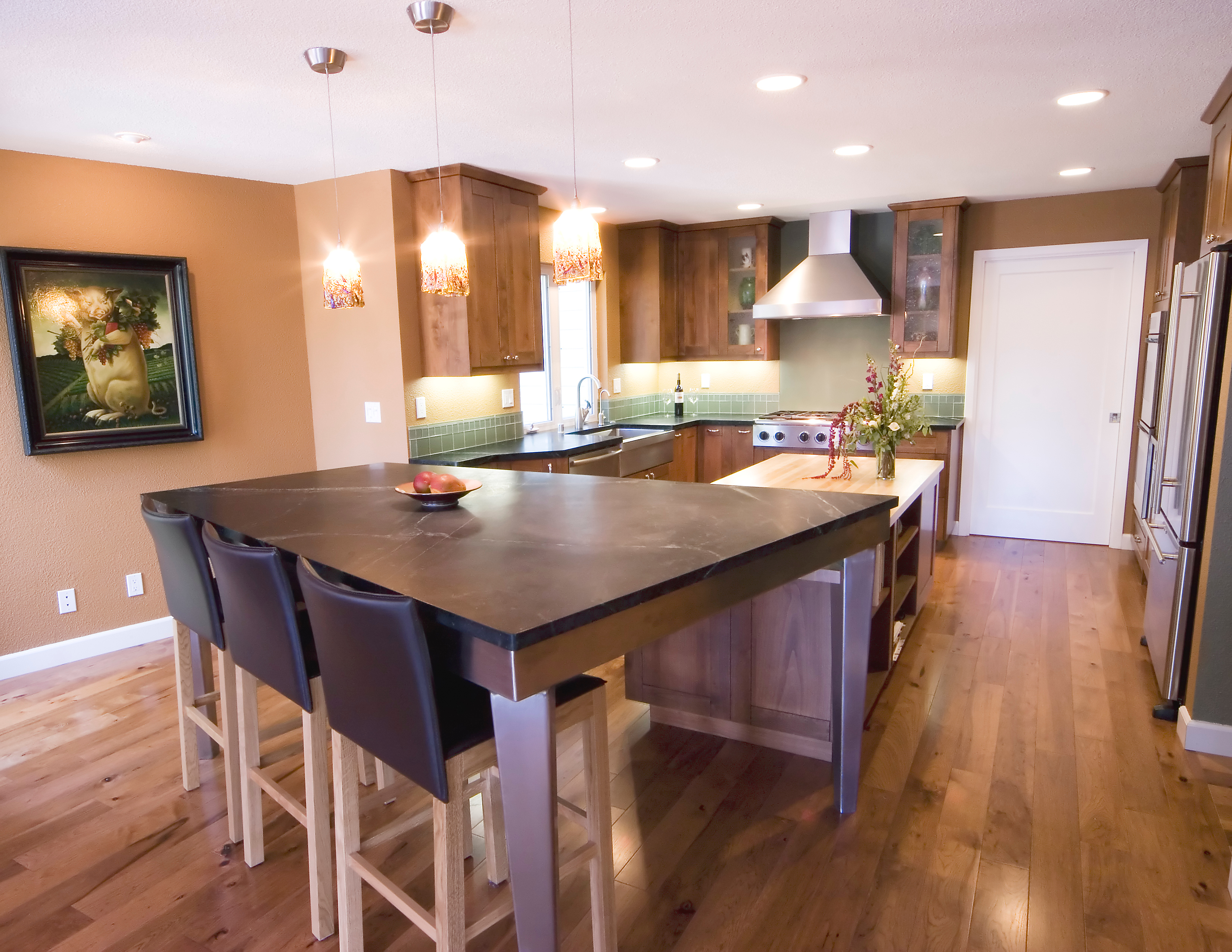
Kitchen remodel by WrightBuilt with soapstone and butcher block counters
What is the perfect counter top? The home improvement boom saw a multitude of solid surfaces with granite and man-made quartz counters leading the charge. Out with tile and grout, in with granite! But there’s another choice: soapstone.
Soapstone is a natural, metamorphic rock also known as “steatite”. There is artistic grade soapstone, commonly found in California, which is softer and can be used for carving. Architectural grade soapstone is much harder and suitable for countertop usage.
Benefits of Soapstone
Soapstone is very dense and non-porous. Nothing will stain or etch soapstone. Other natural stones such as granite or marble must be sealed periodically and are vulnerable to staining. Soapstone is often used in chemistry labs because it is inert and does not react with acidic or corrosive chemicals.
Maintenance of soapstone is minimal and not required. Some people prefer to darken the natural gray soapstone by applying mineral oil. Mineral oil only darkens the stone and enhances it’s natural beauty. The mineral oil is not sealing the stone, only darkening the countertop surface.
Unlike granite or quartz countertops you can set hot pots or pans directly on the soapstone counter. Soapstone is often used in the manufacture of wood stoves and masonry heaters because it can withstand high temperatures. Setting hot objects on your soapstone counters will not crack, discolor or harm the countertop.
Soapstone is very hard, but it can be scratched. Usually an application of mineral oil will make the scratch disappear. Scratches can also be buffed out with standard sand paper. Over time soapstone develops a patina which enhances the natural beauty of the stone.
Soapstone is also the most germ and bacteria resistant natural stone surface available. Cleaning your counter can be done with mild soap and water. You do not have to worry about avoiding ammonia based cleaners, like you would with granite or marble.





